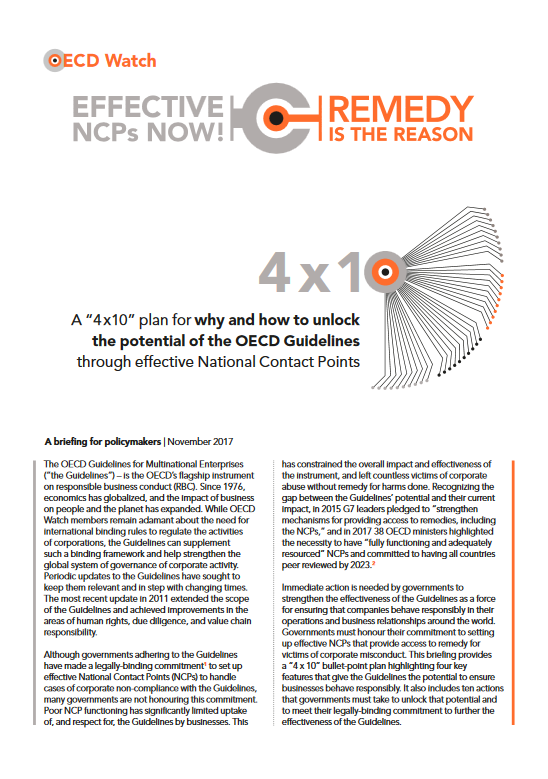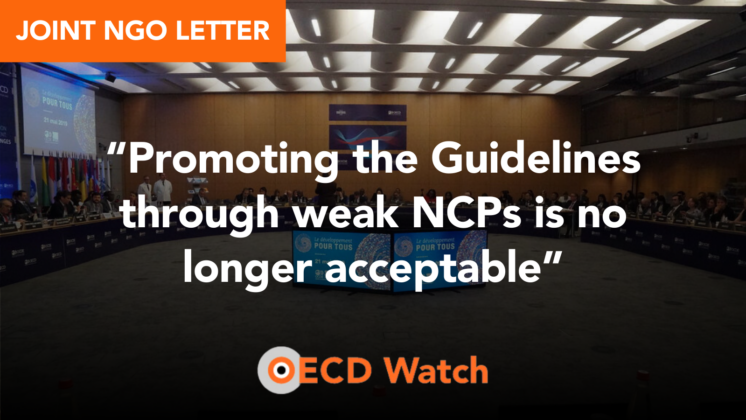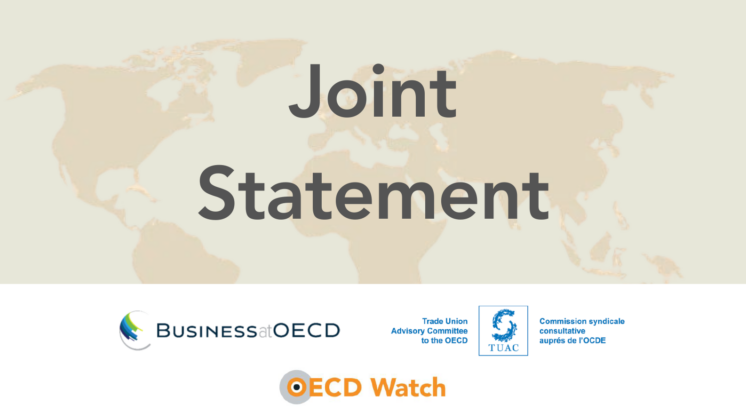Marking 40 years of the OECD Guidelines
Although governments adhering to the Guidelines have made a legally-binding commitment to set up effective National Contact Points (NCPs) to handle cases of corporate non-compliance with the Guidelines, many governments are not honouring this commitment. Poor NCP functioning has significantly limited uptake of, and respect for, the Guidelines by businesses. This has constrained the overall impact and effectiveness of the instrument, and left countless victims of corporate abuse without remedy for harms done. Recognizing the gap between the Guidelines’ potential and their current impact, in 2015 G7 leaders pledged to “strengthen mechanisms for providing access to remedies, including the NCPs,” and in 2017 38 OECD ministers highlighted the necessity to have “fully functioning and adequately resourced” NCPs and committed to having all countries peer reviewed by 2023.
Immediate action is needed by governments to strengthen the effectiveness of the Guidelines as a force for ensuring that companies behave responsibly in their operations and business relationships around the world. Governments must honour their commitment to setting up effective NCPs that provide access to remedy for victims of corporate misconduct. This briefing provides a “4 x 10” bullet-point plan highlighting four key features that give the Guidelines the potential to ensure businesses behave responsibly. It also includes ten actions that governments must take to unlock that potential and to meet their legally-binding commitment to further the effectiveness of the Guidelines.
read more less














